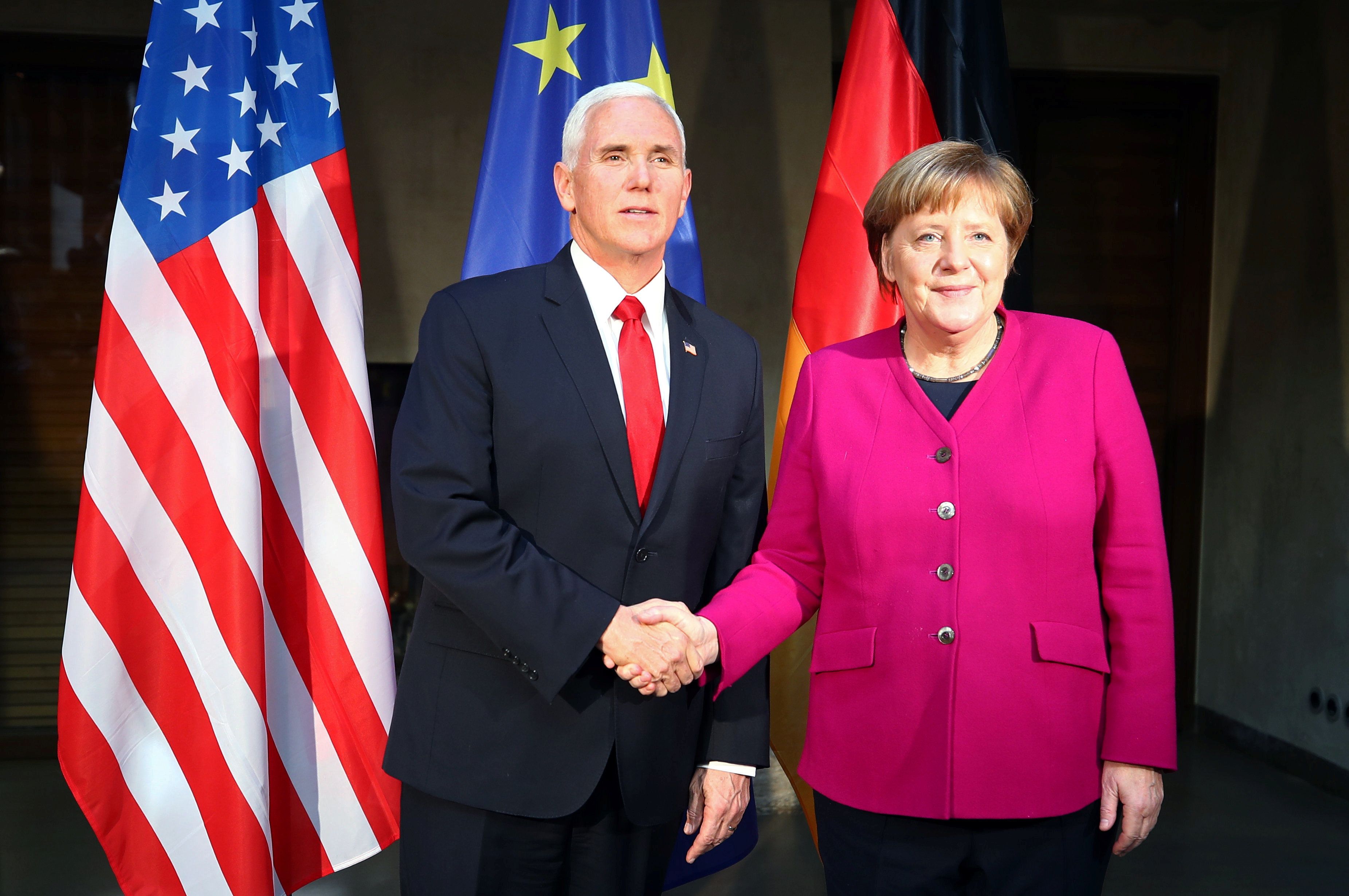February 20, 2019
Last weekend, world leaders, security experts, and business executives flocked to the Hotel Bayrischer Hof in Munich for the 55th annual Munich Security Conference. What's the Munich Security Conference? Think of it a bit like Davos, but with policymakers in dark suits rather than billionaires in Gore-Tex.
The backdrop to this year's gathering was the sense of a deepening divide between the Trump administration and Washington's traditional European allies. Back-to-back speeches from German Chancellor Angela Merkel and US Vice President Mike Pence threw that estrangement into stark relief.
Here's a quick breakdown on some of the most important rifts:
On the Middle East: Pence said "the time has come" for America's European allies to withdraw from the Iran nuclear deal and join the US "as we bring the economic and diplomatic pressure necessary to give the Iranian people, the region, and the world the peace, security, and freedom they deserve." He also defended the US's decision to withdraw its troops from Syria as a "change in tactics, not a change in mission." But the campaign-style speech got a chilly reception from the Munich crowd. Merkel questioned the wisdom of scrapping the nuclear deal, rather than using it as leverage to get Iran to shutter its ballistic missile program and cut support for proxy fighters in Yemen and Syria. She suggested that the US withdrawal from Syria might only end up strengthening Iran and Russia. Her overriding message: real allies should sit down and talk about these tough problems before taking unilateral action.
On trade: The usually cautious Merkel directly criticized the Trump administration's threat to use national security concerns as a pretext to slap import tariffs on European cars. "Look: we are proud of our cars," said Merkel. Pointing out that South Carolina is home to one of the largest BMW factories in the world, the German chancellor said, "if these cars…are suddenly a threat to the national security of the United States of America, that shocks us."
On China: Pence made clear that the US intends to continue to play hardball with China on trade, intellectual property theft, and Beijing's technology and industrial policies. Fine, said Merkel, but in an implicit dig at Trump's more unilateral approach, she countered that multilateralism and cooperation between allies – painstaking though they may be – offer the best chance to grapple with China's rise. You can't, she said, "think that you can solve all things on your own."
Hey Joe! Mike Pence wasn't the only American making waves at Munich. A record-sized US delegation also included House Speaker Nancy Pelosi and other leading members of the US defense and foreign policy establishment, many of whose views are closer to Merkel's than those of Pence or his boss. Former US Vice President and possible 2020 contender Joe Biden, attending in an unofficial capacity, attracted attention with a strongly pro-NATO speech in which he told anxious allies that "This too shall pass. We will be back."
Really? Tempting as it might be for the Europeans to pin their hopes on waiting for a change of administration in 2020, it's a risky strategy. Merkel is on her way out – but Trump might not be.
More For You
Most Popular
- YouTube
In this Quick Take, Ian Bremmer reacts to President Trump’s State of the Union address, calling it “a rehashing of the greatest hits” with little new policy direction.
Small business hiring surged 7% above the 2024 average in December, led by a surprise rally in retail. But with uncertainty still historically high and mounting concerns over tariffs, can this momentum survive 2026? Explore the data behind the resilience of the US small business sector. Get the latest economic insights from Bank of America Institute.
© 2025 GZERO Media. All Rights Reserved | A Eurasia Group media company.
